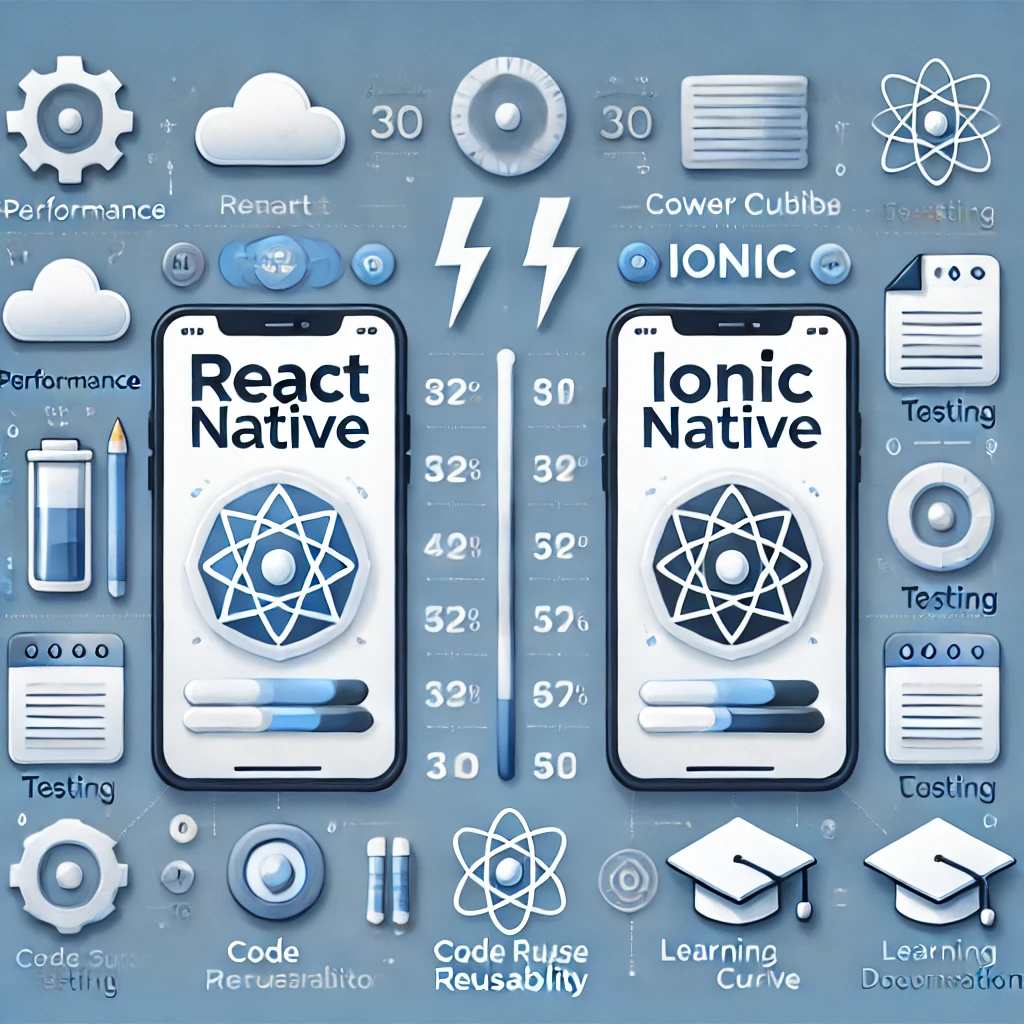KSOFT
Today, mobile phones are practically an extension of ourselves. With around 5 billion smartphones connecting people daily, whether for checking emails, managing finances, or binging Netflix, mobile apps have become a cornerstone of everyday life.
If you're planning to invest in a mobile app, understanding your development options is critical. Pre-development decisions—like selecting a platform—will directly influence your app’s user experience, performance, and success.
In the world of mobile app development, two frameworks lead the race: React Native and Ionic. Let’s break down both technologies, their advantages, limitations, and which one fits your business needs best.
Hybrid applications are built using HTML5, CSS, and JavaScript, all packed into a native container. When a user interacts with the app, the content is loaded like a regular webpage inside a mobile app shell.
Frameworks like Ionic specialize in hybrid app development, making them a strong option for businesses seeking quicker market entry.

Native apps are developed specifically for each platform—Java for Android, Swift or Objective-C for iOS. They offer high performance, better UI/UX, and complete access to device features.
Frameworks like React Native help bridge native capabilities with cross-platform benefits, combining the best of both worlds.
React Native is a popular framework created and backed by Facebook. It's used by major brands like Instagram, Airbnb, and Tesla.
Use React Native if you’re aiming for a high-quality, native-looking app with a scalable future.
Ionic is an open-source, cross-platform framework that utilizes HTML5, CSS, and JavaScript, combined with Apache Cordova.
Choose Ionic if you need a cost-effective, decent-performing app launched quickly across devices.
React Native emphasizes native behaviors and standards for a seamless user experience, while Ionic builds on Angular and web standards, making it an excellent option for teams familiar with web development.
React Native operates on a "learn once, write anywhere" principle, allowing for platform-specific optimizations. On the other hand, Ionic adopts a "write once, run anywhere" philosophy, focusing on broad device compatibility with minimal code changes.
React Native offers developers the flexibility to design apps that closely mimic native applications' appearance. In contrast, Ionic provides a library of ready-made components that help speed up development, although the apps may lack the polished native look.
React Native delivers faster performance, comparable to pure native apps. Ionic offers good performance for most apps but may struggle under the weight of complex graphics or high interactivity requirements.
Testing React Native apps requires a real device or emulator. With Ionic, developers can easily test using a web browser, significantly speeding up the feedback loop.
React Native projects might encounter compatibility issues with third-party libraries as versions evolve. Ionic, meanwhile, benefits from having a single codebase to maintain, although regular updates to the Ionic and Cordova frameworks can introduce their own challenges.

In reality, the right choice depends entirely on your business needs. If your app is core to your operations and brand experience, investing in React Native is wiser. If your app is supplementary—an extension of your website, for instance—Ionic may suffice.
At Ksoft Technologies, we help businesses across the USA and Canada unlock their potential with high-end mobile app development services. Whether it's crafting apps with React Native, leveraging the flexibility of Ionic, or delivering robust custom software development services, our experts ensure your mobile solution meets your exact needs.
As a leading software development company USA, our expertise covers web development AI, website design AI, responsive web design, ecommerce and custom development, and beyond. Our mobile app developers USA are equipped to handle complex projects across industries.
Need app experts near you? Whether you are searching for app developers near me USA or the best software developers USA, Ksoft Technologies is your trusted partner.
Ready to discuss your project? Let's build something extraordinary together.
